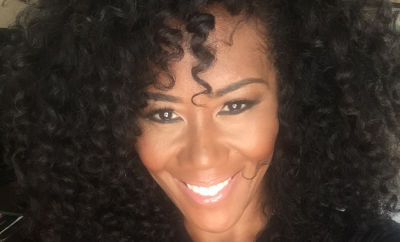
Entertainment
Why Everyone Must See the Film, Dear White People

It can’t be denied that in this new era of the Obama administration and millennial young adults that attitudes towards racial relations have come a long, long way since the days of “separate but equal”, and that’s something our society should be proud of. Some would say we are now living in a new kind of America, a ‘Post- Racial’ America, and this label insinuates that former racial stereotypes which once influenced how people categorized and compartmentalized expectations of each racial grouping in their mind, no longer has any effect on our actions towards individuals. America has finally come to the Utopian place of peace that Dr. King spoke of in his infamous, “I Have a Dream” speech, and people are no longer forced to feel ashamed of their physical and cultural differences… right? Therefore any acknowledgement of said differences is considered irrelevant, or regarded as unnecessarily aggressive and provocative, by anyone that believes they are progressive, civilized, and open minded.
Writer and director, Justin Simien disagrees, as his newest film, Dear White People, boldly lays out the candid truth about the current state of race relations in America. Growing up as African American in the US, the 31 year old breakout director cultivated his unique perspective, based on his own personal experiences.
The story follows four African American, Ivy League college students in, as Calum Marsh of the Village Voice describes as, “a satire about racism among those least inclined to regard themselves as racist.” The film’s protagonist Samantha, played by Tessa Thompson, ignites controversy across campus, by pointing out her observations of campus race relations, specifically between African American and Caucasian students, and does so on her blunt, tongue and cheek, college radio show, “Dear White People”. This in turn creates a ripple effect of confusion amongst the student body, forcing everyone on campus to confront all the issues pertaining to their true personal identities, versus the generalized expectations for race that is endorsed by the current mainstream media. Though there has been much progress and improvement in terms of American racial relations and great strides have been made since even as early as thirty years ago, there are still some misconceptions and misunderstandings about race and the expectations of specific racial identities that permeate our society. As Simien himself has said, “We all struggle with who we are versus who we appear to be, so (this film) was an attempt to articulate that very awkward process of moving culturally between spheres and knowing my experience is a singular one not everyone else is having around me. And that’s part of my black experience, needing to articulate that experience, but not always feeling safe to do so.”

Some of the cast (from left to right)

Already having received critical acclaim, the film first premiered at the 2014 Sundance Film Festival, winning the Special Jury Award for ‘Breakthrough Talent’. The film also won the 2014 ‘Audience Award’ at the 2014 San Francisco Film Festival, and Variety also labeled Justin as “One of the Top 10 Directors to Watch”. In a review for Variety, Justin Chang says this film, “provokes admiration for having bothered to ask some of the hard questions, without pretending to know any of the answers”, which is a feat of artistic and creative gallantry.
Simien’s utilization of satire and wit cleverly diffuses the uncomfortable heat wave that flushes people’s cheeks, when involved in a discussion of race, in this modern age. Dear White People is an effort to start this needed conversation in an accessible format, thus allowing people to shake off the awkwardness right up front and work past the sensitive emotional triggers conversations of race can create. It illustrates both sides of the racially political coin, and is not intended to make people feel guilty or uncomfortable, it’s intention is to make people think and in doing so, genuinely push our society towards the social Utopia we aspire for. By proactively addressing these issues and working through this discussion, there is the opportunity for definitive, informative, and educational conclusions to be reached and genuine constructive change can occur. For how can any positive changes and social progress be made, if issues, no matter how big or small, are not acknowledged? And that’s what Dear White People does, acknowledges the issues and asks the questions most are afraid to ask out loud, in order to get people thinking and inspire true change. Dear White People debuts today in local theaters, so if you are looking for something fun to do tonight, check out your local movie listings and go see it!












